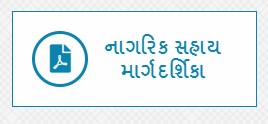Read all information about Social welfare govermant scheme
The Constitution of India constitutes a welfare state. That is clear from our Constitution and its guiding principles. In this way, India provides not only the ideal state but economic planning, and the assurance of justice to the citizen - socially, economically and politically.
Some articles of the Indian Constitution that lead the government to the welfare state:
The state should promote the welfare of the people through safety and security effectiveness as it gives social attitudes justice, social, economic and political resilience, inform every institution at the national level (Article 38).
Citizens, men and women alike, have the right to adequate employment (Article 39A).
The state should ensure through appropriate legal provisions or economic institutions that the working conditions of every agricultural worker, industrial worker and other workers are suitable for their livelihood, especially the state should promote cottage industry at individual and rural level (Article 43).
The State shall, within its economic and developmental limits, ensure efficient service to the work, education and the public system in the case of unemployment, old age, and other matters (Article 41).
The State should ensure education and economic opportunities for the weaker and deprived sections of the society especially for the Scheduled Castes, Scheduled Tribes so as to avoid social injustice and exploitation (Article 46).
The guiding principles of state policy reflect the philosophy of state welfare. To achieve this goal, benefits, schemes, programs and provisions for women, children, Scheduled Castes, Scheduled Tribes, Minorities, Senior Citizens, Disabilities have been made available in Indian languages.
This section covers various policies, institutions and other legal matters relating to women and child development.
This section deals with various schemes, institutions and policies and laws pertaining to Scheduled Tribes.
This section deals with various schemes, institutions and policies and laws pertaining to Scheduled Castes.
This section talks about various scheme s, institutions and policies and laws pertaining to backward classes.
This section covers laws, clauses, policies, scheme's , institutions and other matters relating to minority welfare.
This section covers laws, clauses, policies, schemes, institutions and other matters relating to disability welfare.
This section covers laws, clauses, policies, schemes, institutions and other matters relating to senior citizen welfare.
This section covers laws, clauses, policies, schemes, institutions and other matters relating to rural poverty alleviation.
Governments and voluntary organizations run campaigns at various levels to fight against social evils (injustice against women, slavery, child marriage, untouchability, dowry, alcohol, tobacco use, female feticide, witchcraft, etc.). There are major vices - dowry, gender inequality, drug abuse, inequality, child labor, prostitution, etc. Everyone needs to tak
The Constitution of India constitutes a welfare state. That is clear from our Constitution and its guiding principles. In this way, India provides not only the ideal state but economic planning, and the assurance of justice to the citizen - socially, economically and politically.
Some articles of the Indian Constitution that lead the government to the welfare state:
Citizens, men and women alike, have the right to adequate employment (Article 39A).
The state should ensure through appropriate legal provisions or economic institutions that the working conditions of every agricultural worker, industrial worker and other workers are suitable for their livelihood, especially the state should promote cottage industry at individual and rural level (Article 43).
The State shall, within its economic and developmental limits, ensure efficient service to the work, education and the public system in the case of unemployment, old age, and other matters (Article 41).
The State should ensure education and economic opportunities for the weaker and deprived sections of the society especially for the Scheduled Castes, Scheduled Tribes so as to avoid social injustice and exploitation (Article 46).
The guiding principles of state policy reflect the philosophy of state welfare. To achieve this goal, benefits, schemes, programs and provisions for women, children, Scheduled Castes, Scheduled Tribes, Minorities, Senior Citizens, Disabilities have been made available in Indian languages.
Women and child development
This section covers various policies, institutions and other legal matters relating to women and child development.
Scheduled Tribes Welfare
This section deals with various schemes, institutions and policies and laws pertaining to Scheduled Tribes.
Tribal welfare
This section deals with various schemes, institutions and policies and laws pertaining to Scheduled Castes.
Backward class
This section talks about various scheme s, institutions and policies and laws pertaining to backward classes.
Minority Welfare
This section covers laws, clauses, policies, scheme's , institutions and other matters relating to minority welfare.
Disability welfare
This section covers laws, clauses, policies, schemes, institutions and other matters relating to disability welfare.
Senior Citizen Welfare
This section covers laws, clauses, policies, schemes, institutions and other matters relating to senior citizen welfare.
Rural Poverty Alleviation
This section covers laws, clauses, policies, schemes, institutions and other matters relating to rural poverty alleviation.






Post a Comment